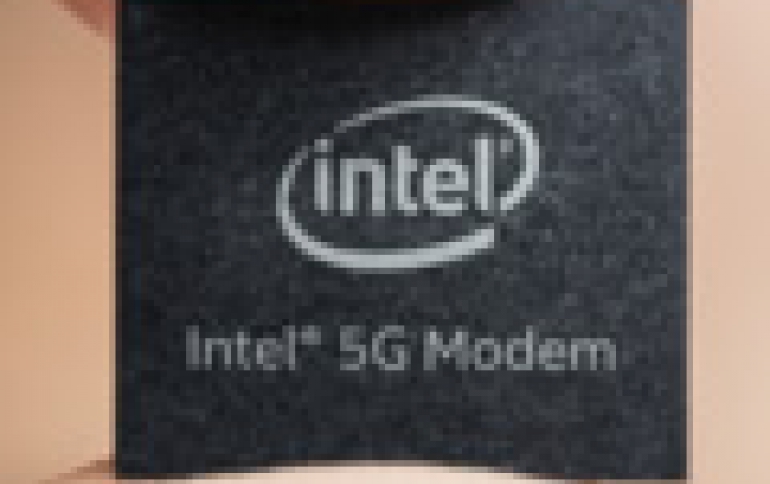
Intel Introduces Portfolio of Commercial 5G New Radio Modems, Extends LTE Roadmap with Intel XMM 7660 Modem
Intel today announced advances in its wireless product roadmap to accelerate the adoption of 5G, as it plans to release 5G and advanced LTE chips in order to close the gap with its rival Qualcomm.
Highlights include the introduction of the Intel XMM 8000 series, Intel's first family of 5G new radio (5G NR) multi-mode commercial modems, and Intel's latest LTE modem, the Intel XMM 7660. Intel also announced it has completed a full end-to-end 5G call based on its early 5G silicon, the Intel 5G Modem. Finally, the Intel XMM 7560 modem unveiled at Mobile World Congress 2017 has achieved gigabit-class speeds.
Intel said that its customers will ship systems in 2018 with an upgraded XMM 7650 baseband that supports CDMA and Gbits/s downlinks. The XMM 7660 will ship in products in mid-2019 supporting 3GPP Release 14 with 4x4 MIMO and data rates up to 1.6 Gbits/s.
In 5G, Intel completed a 28-GHz call using a dedicated silicon implementation of the Verizon 5GTF spec. It plans to have XMM 8060 chips in customer systems shipping in mid-2019 that support the still-emerging 3GPP New Radio standard, the first in a series of 5G XMM 8000 products.


The 8060 will support both non-standalone and standalone modes as well as 2/3G and LTE. Using different RF front-end chips, it will support both millimeter-wave frequencies and bands below 6 GHz.
The updated Intel roadmap potentially matches but doesn't exceed what is expected from Qualcomm.
Apple started using Intel LTE basebands in as many as half of its iPhones last year following patent disputes with Qualcomm. It is said to be considering shifting entirely to Intel next year.
Anticipated broad deployment of 5G networks is expected in 2020.
South Korean carriers have plans for 5G-like services at the Winter Olympics in February, but they will not be based on the 3GPP radio standard, which won't be final until the end of this year.





















